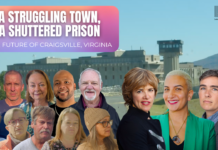Gender-based violence – why are states so bad at making it stop? This week, in her first appearance since fleeing Brazil, women’s rights advocate Debora Diniz joins fellow activists and philanthropists to discuss what works and what doesn’t in stopping violence against women and girls.
Guests
- Terry McGovern currently serves as Harriet and Robert H. Heilbrunn Professor and Chair of the Heilbrunn Department of Population and Family Health and the Director of the Program on Global Health Justice and Governance at the Columbia University Mailman School of Public Health.
- Debora Diniz is Deputy Director of the Rights and Justice Unit for the International Planned Parenthood Federation/Western Hemisphere Region.
- Kavita N. Ramdas is director of the Open Society Foundations’ Women’s Rights Program and is a globally recognized advocate for gender equity and justice.
“It’s a cultural battle against democracy and there is a core agenda that is anti-women, anti-gender, anti-LGBT populations.” – Debora Diniz
“It is really important to look at what are we spending on. Why aren’t we seeing changes? How do we empower people like Debra on the ground who have amazing ideas? What is blocking them from getting resources?” – Terry McGovern
“People like to think about violence in very neat looking boxes and what they don’t understand is there is economic violence being perpetrated on women all the time.” – Kavita N. Ramdas
From Laura:
Gender-based violence happens everywhere. It undermines the health, dignity, security, and autonomy of its victims. It knows no social, economic, or national limits. Violence against women and girls and anyone perceived as vulnerable on the basis of their gender is as old as the hills. Even as year after year, decade after decade, governments and non-governmental organizations alike pledge to stop it. Is it possible that a lot of well-funded efforts just don’t work? Might they even be counterproductive? It’s possible. But, as they say, there is hope. Somehow, against all odds, some of the most vulnerable people in the world are doing some pretty effective work.
















